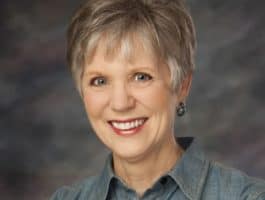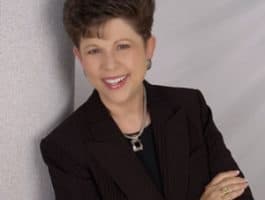
Sharing the Love
Wanted: Women who are willing to listen, love, and mentor younger women. No experience required. Barbara Neumann and Dr. Sue Edwards, professors at Dallas Theological Seminary, tell how they came to faith through the friendship and influence of older women. Barbara and Sue encourage women to forget everything they thought they knew about mentoring in order to minister to a younger generation.
Show Notes
About the Host
About the Guest
-
Wanted: Women who are willing to listen, love, and mentor younger women. No experience required. Barbara Neumann and Dr. Sue Edwards, professors at Dallas Theological Seminary, tell how they came to faith through the friendship and influence of older women. Barbara and Sue encourage women to forget everything they thought they knew about mentoring in order to minister to a younger generation.
-
Dave and Ann Wilson
Dave and Ann Wilson are hosts of FamilyLife Today®, FamilyLife’s nationally-syndicated radio program. Dave and Ann have been married for more than 38 years and have spent the last 33 teaching and mentoring couples and parents across the country. They have been featured speakers at FamilyLife’s Weekend to Remember® marriage getaway since 1993 and have also hosted their own marriage conferences across the country. Cofounders of Kensington Church—a national, multicampus church that hosts more than 14,000 visitors every weekend—the Wilsons are the creative force behind DVD teaching series Rock Your Marriage and The Survival Guide To Parenting, as well as authors of the recently released book Vertical Marriage (Zondervan, 2019). Dave is a graduate of the International School of Theology, where he received a Master of Divinity degree. A Ball State University Hall of Fame quarterback, Dave served the Detroit Lions as chaplain for 33 years. Ann attended the University of Kentucky. She has been active alongside Dave in ministry as a speaker, writer, small-group leader, and mentor to countless wives of professional athletes. The Wilsons live in the Detroit area. They have three grown sons, CJ, Austin, and Cody, three daughters-in-law, and a growing number of grandchildren.
-

Barbara Neumann
Barbara Neumann (DMin, Dallas Theological Seminary) is an adjunct professor in the Educational Ministries and Leadership department at Dallas Theological Seminary.
Sue Edwards
Dr. Edward’s heartbeat is to reinforce ministry partnerships between men and women, which strengthen church and parachurch organizations locally and worldwide. She has thirty-five years of experience in Christian education and Bible teaching, directing women’s ministry, retreat and conference speaking, training teams and teachers, overseeing staff, and writing curriculum. As former pastor to women at her local church she experienced healthy men and women partnerships on staff, and her passio...more
Barbara Neumann and Dr. Sue Edwards encourage women to forget everything they thought they knew about mentoring in order to minister to a younger generation.
Bob: The book of Titus says that older men are to teach younger men and older women are to teach younger women.Author Sue Edwards says that’s something that we need to take seriously. Particularly, she says, older women need to be intentional about that assignment. At the same time, they don’t need to start a mentoring program.
Sue: We don’t sign on for any particular program—we don’t sign on: “We’re going to meet them this many times.” It’s all pretty much driven by the needs in the life of that younger person who needs a guide. To help them and to be part of that process is one of the most enriching experiences.
Bob: This is FamilyLife Today for Wednesday, November 18th. Our host is the President of FamilyLife®, Dennis Rainey, and I’m Bob Lepine. How can an older woman fulfill God’s assignment to her to teach younger women and do that effectively?
1:00
We’ll explore that subject today. Stay tuned.
And welcome to FamilyLife Today. Thanks for joining us. You just used a word, when we were talking before we stepped in here, that I just want to find out if it is a real word. Maybe our guest can help us on this. You used the word, “mentee.”
Now I’ve seen Mentos. Those are the things—the mints you buy at the store. You know what I’m talking about?
Dennis: I do.
Bob: And I know what a mentor is, but I just don’t know if mentee is a legitimate word.
Dennis: We have a couple of doctors with us, here in the studio, from Dallas Theological Seminary, Dr. Barbara Neumann and Dr. Sue Edwards. We’ll just ask you ladies. First of all, welcome to FamilyLife Today.
Sue: Thank you so much.
Barbara: Thank you.
Dennis: So is mentee—is that in the dictionary now?
Sue: I’m assuming it is—I haven’t looked.
2:00
Yes, we use it all the time. It’s terminology that helps us because we need terminology to talk about this topic.
Bob: A person being mentored—
Sue: —is a mentee.
Bob: —is a mentee. It’s not a protégé. Somebody corrected me one time and said, “You have mentors and protégés.” They said, “Mentee is not a word.”
Sue: Well, if you would like to call it a protégé, we’re going to talk about why a lot of that terminology is not even necessary and why we actually need to drop a lot of it anyway. How about that?!
Dennis: Well I see our chief engineer is googling the word, even as we speak right now. We will have an authoritative answer—[Laughter]
Bob: —from Wikipedia. [Laughter]
Dennis: I actually thought mentee was one of those mammals that crawls up on the beach. [Laughter]
Bob: That would be a manatee—that’s what you were thinking about. [Laughter]
Sue: Manatee.
Dennis: Let me just introduce our guests today. Dr. Edwards is the Associate Professor of Educational Ministries in Leadership at Dallas Theological Seminary.
3:00
She has written five books. Dr. Neumann is also a graduate of Dallas Seminary and an Adjunct Professor in Educational Ministries in Leadership, as well, in the Houston branch of Dallas Theological Seminary.
Barbara: That’s right.
Dennis: We have to say, at this point, is growing really fast—over 300 students there.
Together, you have collaborated to write a book that I really enjoyed—Organic Mentoring: A Mentor’s Guide to Relationships with Next Generation Women.
Barbara: Yes
Dennis: You both came to faith in Christ in your 20s. Women/older women were influential in your life. Sue, explain how that happened and how God used mentors in your life, as a younger woman.
Sue: I came out of a dysfunctional home / a non-Christian home. My mother was an angry, bitter woman, trying to make the best of life as she knew it.
4:00
I was a mess by the time I reached college. I graduated from college still wandering, trying to figure out: “What in the world is life about?” Married—actually, my husband was a back-slidden Baptist because he married me, a pagan—not supposed to do that—but God was overseeing it. Thank You, Lord! We moved to Dallas for his first engineering job—had a couple of lovely little daughters that I adored. I adored my husband, but I was a mess trying to be a mom and trying to figure out life.
A neighbor down the street invited me to a women’s Bible study. There, I found the Lord and I found mentors. Very organically—this was nothing programmed. For 15 years, those women walked alongside me as dear friends.
5:00
They trained me and they taught me to lead small groups, and write Bible curriculum, and ultimately to teach the Bible. I ended up going to DTS to be a better Bible teacher in what was a parachurch women’s Bible study, which was very prominent at that time.
Dennis: You mentioned that, not only did they introduce you to the Redeemer, they also were used by God to bring a lot of healing in your life.
Sue: Yes.
Dennis: You keep using the word, “mess.” What was the mess, in essence?
Sue: Serious depression and just had no idea I was self-absorbed. I had grown up an only child. My mother was extremely critical. She thought every—wanted to be sure nobody was prideful—and she made pretty sure I wasn’t. Her critical spirit / constant negativity ended up causing me to—just a loss of personhood. I fell into a deep depression.
6:00
Bob: I want to point something else out, too, because you just kind of went past this. Here you were—a married mother of two, living in a neighborhood—and somebody said, “Would you be interested in going to the woman’s Bible study?” We kind of think, “The lady down the street, who doesn’t go to church, she’s not going to be interested in going to the ladies Bible study,” and “I I invite her, she’s probably going to think I’m weird.” So we don’t invite folks like that.
Sue: We don’t do that enough. People are around us, all the time, who are desperate for what life is about. A lot of times, we are hesitant. Now, this is back in the early 70s. So, maybe, they weren’t quite as hesitant as they are now; but yes, she did. We were friends. Oh my goodness, what a difference it made.
Dennis: Just to underscore what Bob was talking about there—I seldom get on a plane and sit next to a stranger who doesn’t finally ask me, “What do you do?” When I tell them I work for the number one Homebuilder in the world—
7:00
—the God who builds all marriages and families—they get off into their own drama. Everybody’s got a story / everyone has needs. To your point, I think a lot of folks—I don’t know if it’s over 50 percent—but I think they’re hopeless.
Sue: Absolutely.
Dennis: They don’t know how to do this thing called life. They’re ready to talk about their relationships.
Alright; Barbara, let’s go to how you met Christ and how God used women in your life.
Barbara: I have a remarkably similar story to Sue’s—raised in a non-believing, alcoholic home. My dad was an alcoholic; and my mom was just a dysfunctional person, really not able to put together a meaningful life at all. When I left that home, when I was 18 years old, I essentially felt like I was a ship adrift in the ocean. I didn’t have direction—nobody had ever given me any help on how to live life—
8:00
—not a believer. Met my husband / we married. Both of us basically were ships that were drifting without a lot of direction. We came to Christ the same night. Someone came and just gave us a very simple explanation of the gospel.
Dennis: Came to your home?
Barbara: Came to my home. It was a man who was at the church that we were sort of attending at the time. I think he realized that there was something very important missing. He came just to explain to us new life in Christ. We both knew that was the missing piece. We both knew that what we needed to do was to receive Christ, which we did. The same time, we knelt down together, received Christ. A wonderful start—but I still didn’t know how to live life, as a believing woman. I was still confused about a whole lot of things, and I didn’t know how to make this new life work.
9:00
I did end up in a women’s Bible study as well; but the mentoring that took place for me, at that time, was mentoring from a distance. The women, who would stand up and teach—I learned a lot and I absorbed a lot from them—but again, from a distance. I longed for someone to listen to what was going on in my life and help me figure out how to make godly decisions, how to move forward with God, how to love other people. I didn’t learn these things at home. This is what I longed for and didn’t find that for many years. There were just not a lot of women who were available enough or confident enough to mentor.
Dennis: I think both men and women today are looking for models as never before.
Barbara: As never before.
Sue: Yes.
Barbara: This is what we’ve found when we have looked into the mentoring situation.
10:00
We have a generation of young people who are hungry for mentors / desperate even—they told me, “I’m desperate for a mentor.”
Sue: —“ravenous!” Yes.
Barbara: Ravenous!—and yet, not finding them.
Bob: You said, earlier, you think we need to get rid of the word.
Sue: Yes.
Bob: So women and men are desperate for mentors, but they don’t want to call them mentors.
Sue: The reason we would like to deep-six the word, mentor, is because—
Dennis: Hold it! You really want to get rid of it!
Sue: Yes!
Dennis: Deep-six.
Sue: Deep-six it. At least, in the way we interact—when we train, fine; but when we actually are in relationships, we want to get rid of it. We want to help women, especially older women, who have this—this fixed image of what a mentor is. It’s the reason they feel very unqualified. They feel like they don’t have time for it. They look in the mirror and they see someone, and they say: “Well, I don’t measure up. I’m sure not going in for that!”
We want to get rid of it because of the baggage that is associated with the term.
11:00
We would love to completely revamp and revolutionize the entire way that the Christian world looks at how we help people who are behind us in life—how we help them grow up.
Dennis: Barbara, you actually did some research on this—that upwards of 80 percent of younger women, after they’d started some kind of mentoring relationship, dropped out within six months.
Barbara: Not so much a mentoring relationship but a mentoring program—you know, signed up to be matched up with a mentor, usually through their church. Eighty percent of those gals, in the first three months, had abandoned that relationship or that opportunity. What they told me is, “This is not working for me.”
12:00
I investigated “Why?” My research was targeted on: “Why? I want to listen to you. I want to hear what you are saying,”—what the young women are saying—“Why is this not working for you? What do we need to change?” We’re losing this younger generation, and we have particularly lost that ability to impact them through mentoring relationships. It is because of the way it’s been structured for many years—that’s what they told me.
Sue: Yes.
Dennis: The key word you used was “program.”
Barbara: Program; yes.
Dennis: Programmatic.
Barbara: Programmatic.
Dennis: Doesn’t work with next-gen women.
Barbara: Most of them find this just—they can’t relate to the way it is structured. It feels artificial / it feels awkward. Many times they end up in awkward relationships with women that they don’t know or that they don’t admire. It’s forced—the schedule feels forced / the relationship feels forced.
13:00
Most of them now are looking at this type of a mentoring structure and saying: “I’m not interested in that. That doesn’t work for me.”
Bob: As you bring that up, I’m thinking about a co-worker, who came to me years ago and he said, “Would you mentor me?” And my first thought was, “No!” [Laughter] “I don’t know what you’re talking about.” Actually, what I said to him was, “I don’t know what your expectation of that is.” I said: “If you want to get together and have lunch a couple times a month and just talk about life, I’m up for that. If you’re expecting something different—a curriculum / something that I’m going to take you through and, at the end, you get a certificate—I’m not equipped for that.”
What turned out—we started getting together, having lunch, talking about life. That’s really all we’re talking about; isn’t it?
Sue: That’s all we’re talking about. That’s what we’re attempting to help people, younger women particularly, understand.
14:00
They want—we call it a “compulsory click.” They need that “click” with that person they admire, for whatever reason. We don’t know what it is about someone that we think: “Wow! I’d love to take that person to coffee,” or “I’d like to have them in to my every day family life and have some time together while I’m watching the kids, or while I’m doing carpool and they’re with me, or we’re going shopping together, or we just sit and have coffee together.” We talk about life: “What’s going on in your life?”—it’s more of that. C.S. Lewis had that wonderful quote where he said, “Think of me as a fellow patient in the same hospital who, having been admitted a little earlier, could give some advice.” [Laughter]
Sue: I just love that. That just sets that—we don’t sign on for any particular program / we don’t sign on: “We’re going to meet them this many times.”
15:00
It’s all pretty much driven by the needs in the life of that younger person, who needs a guide.
Bob: I would think that that first time getting together might be easier than the second time getting together. Here’s what I’m imagining—if somebody comes and says, “Hey, could we have coffee?” and you say, “Sure, we could have coffee.” You have it, and it’s a nice relationship—“I’ve really enjoyed being here,”—and it’s over.
Now, the question is: “Who takes the next step to say, ‘Do you want to get together again?’” Does the older woman, who was invited out—does she get forward?
Sue: We say, “No.” What we heard from younger women is that it’s that younger woman who needs to make that decision and to take the initiative—although, we help. We help by showing an interest in them. Sometimes, I’ll just text: “How are you? The Lord brought you to my heart. I want you to know I’m praying for you.”
16:00
We do things like that to show her that we care, but it needs to be driven by the mentee. Wouldn’t you agree, Barbara?
Barbara: Absolutely; because they will initiate contact based on what is going on in their life and their schedule—so whenever it works for them. They will reach out again if, as you say Bob, that first conversation is a good one and it is a helpful one.
Bob: Yes.
Barbara: They will come back for more because it added value to their life. If you’re open—if you are friendly / if they know that they can ask, they will. Usually, it is a text because that is the way they communicate.
If I do text them, I often find that they will text back and they’ll say: “Oh, I’m doing great! Hey, can you meet for coffee this week?” It is initiated and driven by their schedule / their needs and what it is they want to talk about.
17:00
Dennis: When we were first married, we lived in Dallas. I remember we came to a point in our marriage where I felt like Barbara needed to talk to an older woman, not to me, as her young husband, who is also in a steep learning curve of his own. [Laughter]
Bob: Clueless would be the word. [Laughter]
Dennis: That would be correct—that would be correct. I repeated my rookie season several years. [Laughter] Anyway, she needed to talk to somebody; and I had to really, really, really encourage her to make the call. To just underscore what you ladies are saying, I do think it needs to come from the mentee, reaching out to the person they’d like to spend some time with. I think, in many cases, it’s going to take a husband, alongside of his wife, or a very good friend, saying, “You know, I just want to encourage you—reach out to Such-and-such.”
This actually happened here recently.
18:00
There’s a Christian leader, who has gone through some challenges, just in terms of busyness and all that is taking place in his life, and ministry, and their family. He said, “You know, my wife would really like to talk with your wife.” And I said: “Let’s do it! Let’s arrange it.” So we did. They met.
I doubled back with him and I said, “Let me just remind you—you need to encourage your wife to call Barbara again.” Why? Because I think there are some young women in this generation who don’t have the self-confidence and feel like they’re intruding—and older women who are busy / who have other responsibilities. I mean, you’ve both said you’ve got a lot going on. Younger women look at your lives: “Oh, Sue would never have time for me.” I would say to that young lady, “Don’t make the decision for Sue.”
Sue: Absolutely! That’s so important; yes.
19:00
We can have a welcoming demeanor. It’s amazing how we do this. I probably meet with several women every week just because—some of it is because of the book. I tell them, “I never turned anybody down,”—I actually haven’t.
Dennis: Uh-oh. [Laughter]
Sue: Yes.
Dennis: This broadcast is heard in—and in Houston. [Laughter] You have to be careful! [Laughter]
Sue: You know, God orchestrates this—I mean, we have to be flexible / we have boundaries on our life. We are very—we take good care of ourselves / we have to—but God works this out. It’s not like these women want to talk to you every week or every month. Most of the time, it’s very flexible / it’s very organic.
The strange thing is—Barbara and I—we were talking about this last night. We’re both introverts—we love people, but we can get exhausted by people—but the joy that it’s brought to my life, and I think Barbara would agree, is just incomparable.
20:00
I want to get that across to older women, who think: “Oh my goodness. This is something I have to give up. I have to put this in my schedule—I don’t really want to. I’m making all the sacrifices.”
Dennis: But it’s life-giving; isn’t it?
Sue: Yes, it’s life-giving to both. It’s actually doing something, one person at a time, to make a difference. Our goal, through the book, is to have older women come to love and understand—and not put up unnecessary road blocks and hindrances. I think we do just because we come from a different frame of reference.
Dennis: I just want to speak to the listener right now. You’ve just heard a compelling case being made to get in the game and to make an impact in another person’s life—perhaps a little younger. I looked the word, “mentor,” up in the dictionary. It means “Experienced and trusted advisor.”
21:00
Bob: Somebody’s been in the hospital a few days longer than you.
Sue: Yes.
Dennis: Exactly—I love that C.S. Lewis quote—no doubt about it. If you’ve had a few more experiences than a younger person, or even an older person, who’s new to the faith—
Sue: Absolutely.
Dennis: —you have something to share from your brokenness / from your mistakes you’ve made. In fact, I say that some of your best teaching moments are from your mistakes and your errors that you’ve made because you can pass along some godly advice to another person and perhaps keep them out of the ditch.
Sue: Yes.
Dennis: I just encourage women—and for that matter, men—to get a copy of this book, Organic Mentoring, because I think this is something that applies to both sexes, men and women—certainly something the next generation desperately wants and needs
Bob: I think there is a desire to do it; but the question is: “How do we do it effectively?”
22:00
That’s what the book addresses. We’ve got copies of the book, Organic Mentoring, in our FamilyLife Today Resource Center. You can go, online, to FamilyLifeToday.com. Click the link that says, ‘GO DEEPER,’ and find out how to order a copy of Organic Mentoring: A Mentor’s Guide to Relationships with Next Generation Women by Sue Edwards and Barbara Neumann. Go to FamilyLifeToday.com and order your copy of the book; or call if you’d like to order: 1-800-FL-TODAY is our toll-free number—1-800-358-6329—that’s 1-800-“F” and in family, “L” as in life, and then the word, “TODAY.”
It’s interesting—we have had people tell us over the years that FamilyLife Today has been used by God in a mentoring kind of relationship. We’re grateful to God for this medium / for this opportunity—the privilege that that is—
23:00
—to be able to pour into the lives of other men, into the lives of couples, moms and dads. We’re grateful to those of you who support the ministry of FamilyLife Today and make all of this possible. We are listener-supported. Your donations help cover the cost of producing and syndicating this daily radio program. So “Thank you for partnering with us and making this kind of mentoring possible.”
If you can make a donation today in support of the ministry, we’d really love to hear from you. You can go, online, at FamilyLifeToday.com. Click the link in the upper right-hand corner of the screen that says, “I Care”—make an online donation. Or call 1-800-FL-TODAY—make a donation over the phone. Or you can mail your donation to FamilyLife Today, PO Box 7111, Little Rock, AR; our zip code is 72223.
By the way, along with the donation, if you’d let us know that you’d like a copy of Barbara Rainey’s book, Growing Together in Gratitude—
24:00
—seven stories about gratefulness that you can read together as a family—we’d love to send you that as our way of saying, “Thank you for your partnership with us in this ministry.”
We hope you can be back with us tomorrow. We’re going to continue our conversation about older women pouring into the lives of younger women as we talk more about Organic Mentoring tomorrow.
I want to thank our engineer today, Keith Lynch, along with our entire broadcast production team. On behalf of our host, Dennis Rainey, I'm Bob Lepine. We will see you back Thursday for another edition of FamilyLife Today.
FamilyLife Today is a production of FamilyLife of Little Rock, Arkansas.
Help for today. Hope for tomorrow.
We are so happy to provide these transcripts to you. However, there is a cost to produce them for our website. If you’ve benefited from the broadcast transcripts, would you consider donating today to help defray the costs?
Copyright © 2015 FamilyLife. All rights reserved.
1




